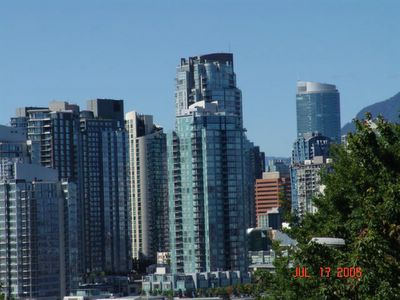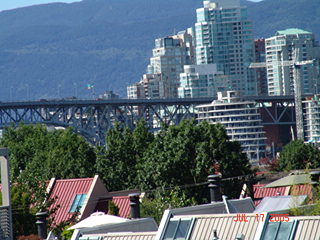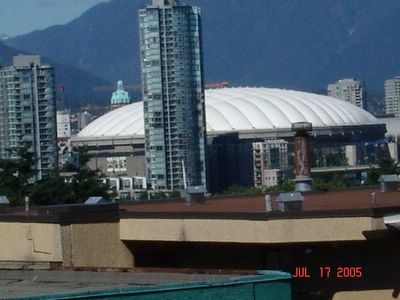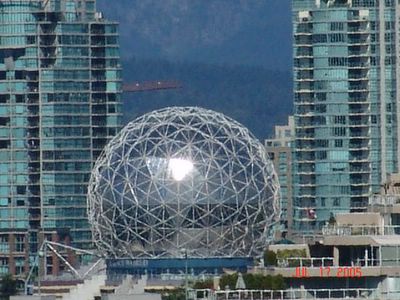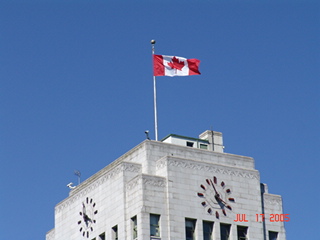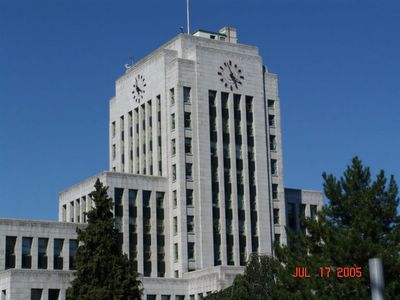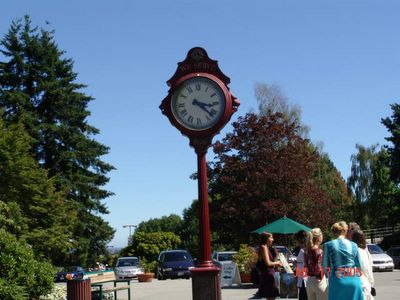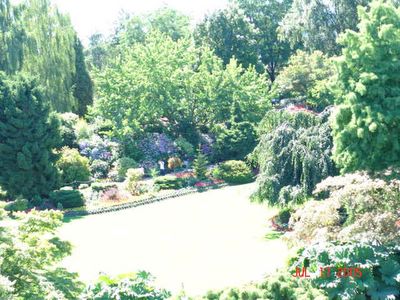Sunday, July 17, 2005
Vancouver, BC : a Photographic Documentation
We are right in the middle of summer, vacations time. I thought I'd take a break from the subject matter of this blog to spend a word about my hometown, Vancouver, BC, designated the #3 best city in the world right after Zurich and Geneve. I can personally attest to the fact that this designation is very well deserved: Vancouver, BC is a splendid city.
Vancouver is located in the southwest corner of Canada in the province of British Columbia, at about 49° Latitude and 123° Longitude, next to the Pacific Ocean. Vancouver is surrounded by water on three sides and overlooked by the Coast Range - mountains that rise abruptly to more than 1,500 m. Its climate is one of the mildest in Canada. Temperatures average 3°C in January and 18°C in July. Vancouver's average annual precipitation is 1,219 mm. Most rainfall occurs in winter. Archaeological evidence shows that coastal Indians had settled the Vancouver area by 500 B.C. British naval captain George Vancouver explored the area in 1792. Vancouver was founded as a sawmill settlement called Granville in the 1870s. The city was incorporated in 1886 and renamed after Captain Vancouver. With a present population of about 560,000 (estimated), Vancouver lies in a region of more than 2 million people. Vancouver is the largest city in the province and the third largest in Canada. It covers an area of 113 sq km. As the main western terminus of Canada's transcontinental highway and rail routes, Vancouver is the primary city of western Canada, as well as one of the nation's largest industrial centers.
Vancouver's Central Area has 60% of the region's office space and is home to headquarters of forest products and mining companies as well as branches of national and international banks, accounting and law firms. In recent years, Vancouver has expanded as a centre for software development and biotechnology, while film studios and the streets provide a backdrop for the developing film industry. Two of the Port of Vancouver's container docks are located in the city. The Fraser River has barge and log traffic serving forestry and other water related industries. Around 1,800 acres of industrial land provide an important range of support services, manufacturing and wholesale premises for businesses throughout the city and region. Vancouver is a major tourist destination. Whether you are from another part of Canada or a foreigner, you should come and visit Vancouver. You will not be disappointed.
Here are a few snapshots I have taken this afternoon with my Sony DSF 828.
Luigi Frascati
Real Estate Chronicle
Vancouver, BC: the City of 140,000 Trees
If you intend to visit Vancouver, Canada this summer you will be amazed at the number of trees that my hometown boasts. Vancouver, BC is in fact the only one city in the world featuring over 140,000 trees throughout its municipal territory. And this, of course, does not take into account all the shrubs, flowerbeds, aerial flower designs and, most of all, trees and shrubs and bushes located into private properties. Vancouver over the spring and summer is an absolute spectacle to see.
Today I have taken a day off and spent the entire afternoon at the Queen Elisabeth Park, one of the many parks in town and certainly the most famous. The top of this beautifully maintained 52 hectare (130 acre) park is the highest point in the city, at 167m (505 ft) above sea level. From the lookouts, visitors have a 360 degree view of the Vancouver skyline. The park receives nearly 6 million visitors a year who marvel at its superior standard of garden plantings. Here you can see some of the photos I have taken using my Sony DSF 828 digital camera.
Luigi Frascati
Real Estate Chronicle








